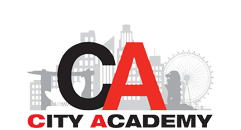he aim of this paper is to enable students to apply technical knowledge and professional skills to identify and resolve technical compliance and ethical issues that arise in the context of the preparation and evaluation of financial and regulatory reporting and from providing audit and assurance

Overview:
The aim of this paper is to enable students to apply technical knowledge and professional skills to identify and resolve technical compliance and ethical issues that arise in the context of the preparation and evaluation of financial and regulatory reporting and from providing audit and assurance services in the banking sector.
The focus of the BPB module is on your role as an ICAEW accountant working in the banking industry, either within an external advisory role (e.g. external audit / assurance services) or within a bank (e.g. internal audit / compliance / risk management). BPB has been designed as a bridging paper building towards the Advanced stage of your qualification.
Skills brought forward from AA, FAR and FM will be useful in attempting this paper. We will also cover new skills including financial instruments, risk management and banking regulation.
BPB as a business planning paper requires candidates to demonstrate their ability to integrate and apply the following core areas of the syllabus to practical scenario-based requirements:
Risk Management and financial services and products 20-25%
Financial and Regulatory Reporting for banks 35-40%
Audit and assurance of banks 30-35%
Ethics 5-10%
Marks will be awarded for knowledge (25%-35%) and skills (65%-75%).
Banking is a complex and multi-disciplinary area and some pre-course reading will be necessary to introduce you to some key concepts that underpin the BPB module.
On completion of the Business Planning Banking module, students will be able to:
There are three written test questions typically split 40/35/25 or 40/30/30. Each question will include several scenario-related sub-requirements. However, the mark allocation for the sub-requirements will not be indicated. The pass mark required is 55%. BPB is an open book exam and you will be able to take in any hard copy (written or printed) material. However, you will need to carefully consider what to include in your exam file, given limited desk space and the need to demonstrate effective time management skills.
There are six main question areas you will be expected to gain exposure to and therefore you must ensure you gain full coverage of the BPBl syllabus:
External audit context
Analysis for financing decisions
Risk management and compliance
A Bank acting as an intermediary or advisor
Strategic or business planning
Regulatory reporting
Through face-to-face classes, City Academy helped our students achieve high pass rates for the advanced level papers in Strategic Business Management and Corporate Reporting and enabled Ms Lim Jia En to achieve a high score of 96% in Audit Assurance exam.
© 2025 coursetakers.com All Rights Reserved. Terms and Conditions of use | Privacy Policy